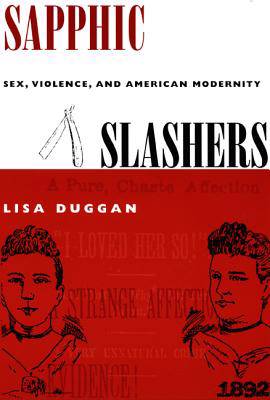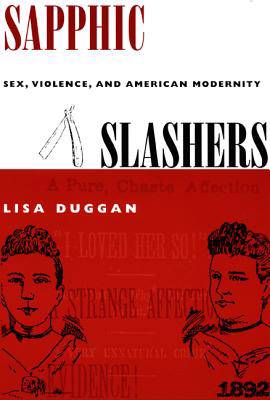
- Retrait gratuit dans votre magasin Club
- 7.000.000 titres dans notre catalogue
- Payer en toute sécurité
- Toujours un magasin près de chez vous
- Retrait gratuit dans votre magasin Club
- 7.000.000 titres dans notre catalogue
- Payer en toute sécurité
- Toujours un magasin près de chez vous
42,95 €
+ 85 points
Format
Description
On a winter day in 1892, in the broad daylight of downtown Memphis, Tennessee, a middle class woman named Alice Mitchell slashed the throat of her lover, Freda Ward, killing her instantly. Local, national, and international newspapers, medical and scientific publications, and popular fiction writers all clamored to cover the ensuing "girl lovers" murder trial. Lisa Duggan locates in this sensationalized event the emergence of the lesbian in U.S. mass culture and shows how newly "modern" notions of normality and morality that arose from such cases still haunt and distort lesbian and gay politics to the present day.
Situating this story alongside simultaneously circulating lynching narratives (and its resistant versions, such as those of Memphis antilynching activist Ida B. Wells) Duggan reveals how stories of sex and violence were crucial to the development of American modernity. While careful to point out the differences between the public reigns of terror that led to many lynchings and the rarer instances of the murder of one woman by another privately motivated woman, Duggan asserts that dominant versions of both sets of stories contributed to the marginalization of African Americans and women while solidifying a distinctly white, male, heterosexual form of American citizenship. Having explored the role of turn-of-the-century print media-and in particular their tendency toward sensationalism-Duggan moves next to a review of sexology literature and to novels, most notably Radclyffe Hall's The Well of Loneliness. Sapphic Slashers concludes with two appendices, one of which presents a detailed summary of Ward's murder, the trial, and Mitchell's eventual institutionalization. The other presents transcriptions of letters exchanged between the two women prior to the crime.
Combining cultural history, feminist and queer theory, narrative analysis, and compelling storytelling, Sapphic Slashers provides the first history of the emergence of the lesbian in twentieth-century mass culture.
Situating this story alongside simultaneously circulating lynching narratives (and its resistant versions, such as those of Memphis antilynching activist Ida B. Wells) Duggan reveals how stories of sex and violence were crucial to the development of American modernity. While careful to point out the differences between the public reigns of terror that led to many lynchings and the rarer instances of the murder of one woman by another privately motivated woman, Duggan asserts that dominant versions of both sets of stories contributed to the marginalization of African Americans and women while solidifying a distinctly white, male, heterosexual form of American citizenship. Having explored the role of turn-of-the-century print media-and in particular their tendency toward sensationalism-Duggan moves next to a review of sexology literature and to novels, most notably Radclyffe Hall's The Well of Loneliness. Sapphic Slashers concludes with two appendices, one of which presents a detailed summary of Ward's murder, the trial, and Mitchell's eventual institutionalization. The other presents transcriptions of letters exchanged between the two women prior to the crime.
Combining cultural history, feminist and queer theory, narrative analysis, and compelling storytelling, Sapphic Slashers provides the first history of the emergence of the lesbian in twentieth-century mass culture.
Spécifications
Parties prenantes
- Auteur(s) :
- Editeur:
Contenu
- Nombre de pages :
- 328
- Langue:
- Anglais
Caractéristiques
- EAN:
- 9780822326175
- Date de parution :
- 10-01-01
- Format:
- Livre broché
- Format numérique:
- Trade paperback (VS)
- Dimensions :
- 156 mm x 234 mm
- Poids :
- 458 g







